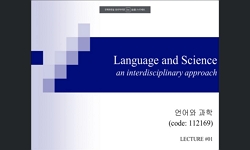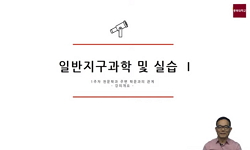Since the New Culture Movement, the traditional culture and values of China began to collapse, and the Western Liberalism and Marxism became the mainstream of culture. In this historical background, a group of Confucianism tried to protect Confucian c...
http://chineseinput.net/에서 pinyin(병음)방식으로 중국어를 변환할 수 있습니다.
변환된 중국어를 복사하여 사용하시면 됩니다.
- 中文 을 입력하시려면 zhongwen을 입력하시고 space를누르시면됩니다.
- 北京 을 입력하시려면 beijing을 입력하시고 space를 누르시면 됩니다.

현대 중국의 유학연구 동향과 전망 - 유교부흥운동과 문화보수주의를 중심으로 = The Research Tendency and Prospect of Modern Chinese Confucianism: Centered on Confucianism Renaissance and Cultural Conservatism
한글로보기https://www.riss.kr/link?id=A104524820
-
저자
원영호 (吉林大學)
- 발행기관
- 학술지명
- 권호사항
-
발행연도
2012
-
작성언어
Korean
-
주제어
neo-confucianism ; neo-confucian science ; democracy modernity ; 현대신유가 ; 현대신유학 ; 과학 ; 민주 ; 현대성
-
등재정보
KCI등재
-
자료형태
학술저널
-
수록면
125-151(27쪽)
-
KCI 피인용횟수
7
- 제공처
- 소장기관
-
0
상세조회 -
0
다운로드
부가정보
다국어 초록 (Multilingual Abstract)
Since the New Culture Movement, the traditional culture and values of China began to collapse, and the Western Liberalism and Marxism became the mainstream of culture. In this historical background, a group of Confucianism tried to protect Confucian culture and values through unremittingly efforts, and it gave birth to in 1920s. The first generation of modern neo-Confucians admitted the importance of western democracy and science. In addition, they explain that the Confucian culture is not conflict with the modern culture; the second generation of the modern new Confucianism left the mainland and had activities in Hong Kong and Taiwan area. They tried to find complementary relationship between Confucian culture and the modern democratism; Because of their new horizons of postmodernism, The third generation of the modern new Confucianism emphasize the cultural relativity to seek the cultural resource forover coming modernistic which from the Confucian.
In order to repair the traditional culture which was destroyed by Cultural Revolution, China has developing long-term and in-depth cultural Renaissance activities since the 1990s. In 2004, it has also appeared cultural conservatism in China that claimed to establish the Confucius as the National Religion and utilize the authoritarian kingcraft politics instead of democratic politics. But today the development of Confucius tends to be andweensureitsacademicindependenceinordertoreturnthenatureofConfucianism.A splentyofmodernnew Confucianism didn’t reject the idea of political democracy in the past, only in the process that absorb its essence actively will have the real future of Confucianism.
국문 초록 (Abstract)
현대 중국은 신문화운동으로부터 시작하여 전통적 문화와 가치관이 무너지고, 서양의 자유주의와 마르크스주의의 거대한 흐름이 주류를 이루게 된다. 이러한 역사적 흐름 속에서도 유교적 ...
현대 중국은 신문화운동으로부터 시작하여 전통적 문화와 가치관이 무너지고, 서양의 자유주의와 마르크스주의의 거대한 흐름이 주류를 이루게 된다. 이러한 역사적 흐름 속에서도 유교적 문화와 가치를 고수하려는 유학자들의 끈질긴 노력에 의하여 1920년대부터 현대신유학이 탄생된다. 제1대 현대신유가들은 서양의 자유, 민주와 과학의 가치를 승인하면서도 유교적 문화가 현대 서양의 문화와 대립적 관계가 아님을 설명하려고 시도한다. 건국 이래 제2대 유가들은 대륙을 떠나 대만과 홍콩을 중심으로 활동하면서 유교문화와 현대 민주주의가 서로 수용될 수가 있고 보완적 관계를 이룰 수 있다는 주장을 전 세계에 알리려고 노력하였다. 제3대 유학자들은 포스트모더니즘이라는 새로운 사상의 흐름 속에서 문화의 상대성을 강조하고 유교의 사상자원을 현대성의 극복이라는 의미에서 재해석하려고 시도했다.
1990년대로부터 대륙에서는 문화대혁명에 의하여 완전히 피폐해진 전통문화를 복구하기 위하여 장기적인 유교부흥 운동을 전개했고, 2004년부터는 또한 반자유주의적 국가이데올로기의 변화에 호응하여 유교를 국교로 삼고 권위주의적 왕도정치를 주장하는 문화보수주의가 등장한다. 그러나 현재의 유학은 다원적인 발전추세를 이루고 있고, 학문의 본질로 돌아가기 위해서는 정치권력으로부터 독립성을 확보해야한다. 그리고 중국의 유학은 많은 현대신유가들이 그러했듯이 민주주의의 이념을 배척하기보다는 적극적으로 수용하는 과정에서 참된 미래가 열리게 될 것이다.
참고문헌 (Reference)
1 蔣慶, "讀經與中國文化的復興"
2 羅義俊, "評新儒家" 上海人民出版社 1991
3 方克立, "致第七屆當代新儒學國際學術會議信"
4 "甲申文化宣言"
5 蔣慶, "王道是當今中國政治的發展方向 In 原道 10" 北京大學出版社 79-94, 2005
6 蔣慶, "王道政治與共和政體"
7 蔣慶, "政治儒學" 三聯書店 2003
8 康有爲, "康有爲政治論集 下" 中華書局 1981
9 "孟子"
10 蔣慶., "以善致善: 蔣慶與盛洪對話" 三聯書店 2004
1 蔣慶, "讀經與中國文化的復興"
2 羅義俊, "評新儒家" 上海人民出版社 1991
3 方克立, "致第七屆當代新儒學國際學術會議信"
4 "甲申文化宣言"
5 蔣慶, "王道是當今中國政治的發展方向 In 原道 10" 北京大學出版社 79-94, 2005
6 蔣慶, "王道政治與共和政體"
7 蔣慶, "政治儒學" 三聯書店 2003
8 康有爲, "康有爲政治論集 下" 中華書局 1981
9 "孟子"
10 蔣慶., "以善致善: 蔣慶與盛洪對話" 三聯書店 2004
11 康曉光, "仁政: 中國政治發展的第三條道路" 八方文化創作室 2005
12 中國孔子硏究基金會編輯, "中國儒學年鑒(2009)" 中國儒學年鑒社 2009
13 王怡, "“讀經” 與文化保守主義" 28 : 65-, 2004
동일학술지(권/호) 다른 논문
-
- 東洋社會思想學會
- 이승훈(Lee, Seung-Hun)
- 2012
- KCI등재
-
- 동양사회사상학회
- 이현지(Lee, Hyun-Ji)
- 2012
- KCI등재
-
- 동양사회사상학회
- 홍승표(Hong, Seung-Pyo)
- 2012
- KCI등재
-
- 동양사회사상학회
- 윤세원(Yoon, Sae-Weon)
- 2012
- KCI등재
분석정보
인용정보 인용지수 설명보기
학술지 이력
| 연월일 | 이력구분 | 이력상세 | 등재구분 |
|---|---|---|---|
| 2027 | 평가예정 | 재인증평가 신청대상 (재인증) | |
| 2021-01-01 | 평가 | 등재학술지 유지 (재인증) |  |
| 2018-01-01 | 평가 | 등재학술지 유지 (등재유지) |  |
| 2015-01-01 | 평가 | 등재학술지 유지 (등재유지) |  |
| 2013-09-24 | 학술지명변경 | 한글명 : 동양사회사상 -> 사회사상과 문화외국어명 : Jonrnal of East Asian Social Thoughts -> Jonrnal of Social Thoughts and Culture |  |
| 2011-01-01 | 평가 | 등재학술지 유지 (등재유지) |  |
| 2009-01-01 | 평가 | 등재학술지 유지 (등재유지) |  |
| 2007-01-01 | 평가 | 등재학술지 유지 (등재유지) |  |
| 2006-03-06 | 학술지명변경 | 외국어명 : Jonrnal of Asian Social Thoughts -> Jonrnal of East Asian Social Thoughts |  |
| 2004-01-01 | 평가 | 등재학술지 선정 (등재후보2차) |  |
| 2002-01-01 | 평가 | 등재후보학술지 선정 (신규평가) |  |
학술지 인용정보
| 기준연도 | WOS-KCI 통합IF(2년) | KCIF(2년) | KCIF(3년) |
|---|---|---|---|
| 2016 | 0.84 | 0.84 | 0.84 |
| KCIF(4년) | KCIF(5년) | 중심성지수(3년) | 즉시성지수 |
| 0.8 | 0.83 | 1.569 | 0.23 |




 KCI
KCI







